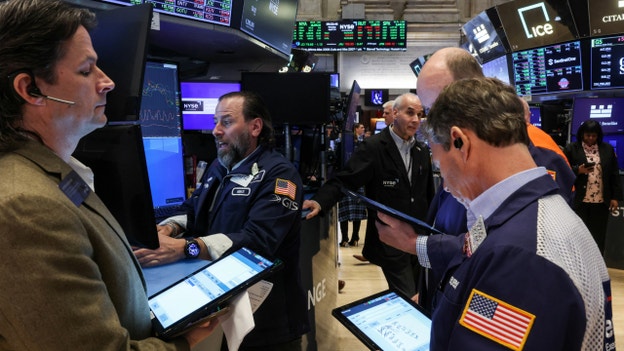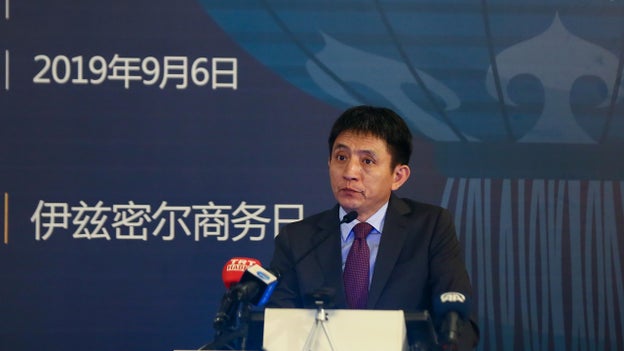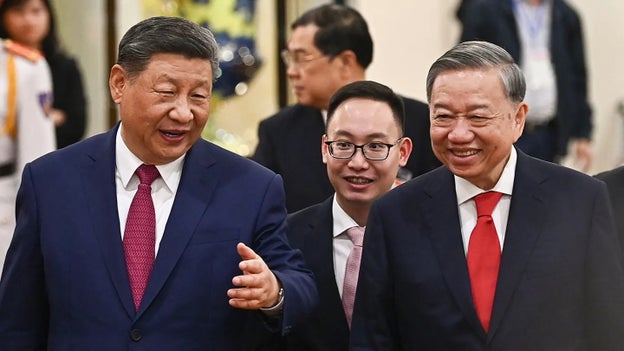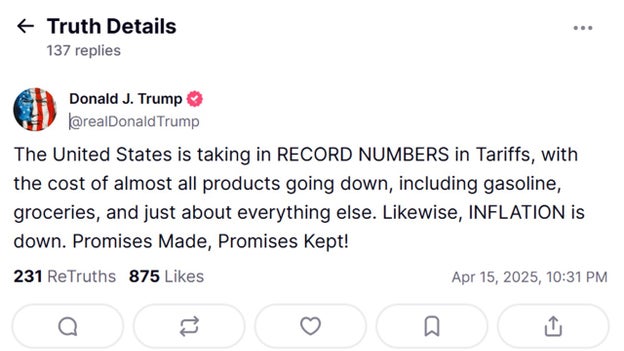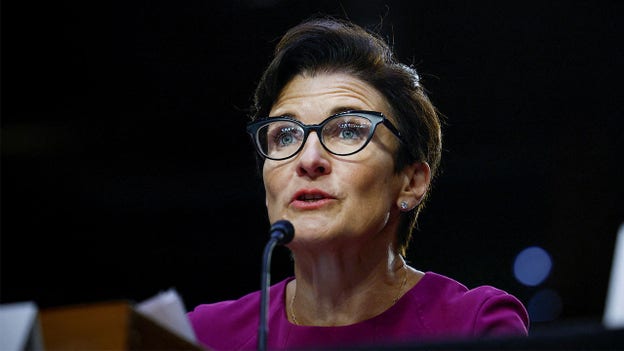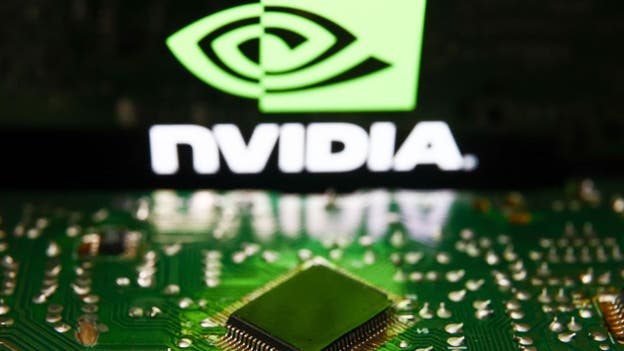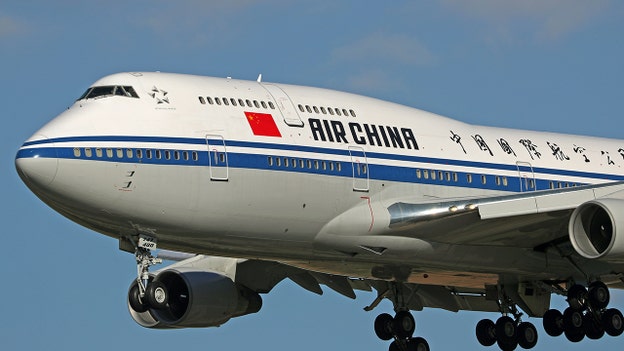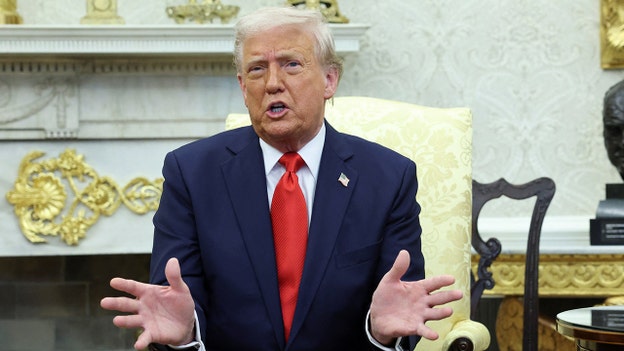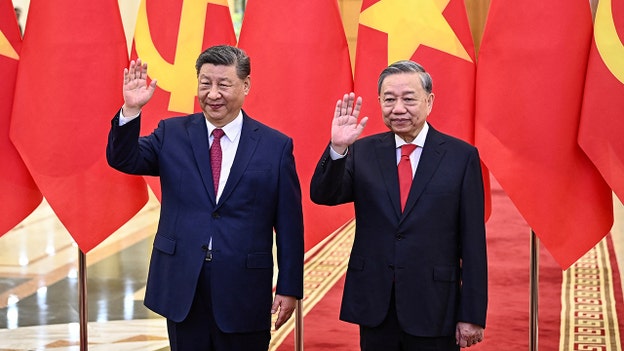Stocks waffle as investors wait on tariff update for autos, electronics: Live Updates
Stocks drifted early Tuesday as investors look for more details on where tariffs stand for autos and tech products after President Trump signaled some wiggle room on Monday. Stocks rallied to start the shortened holiday week notching the first back-to-back gains for the Dow since late March and for the S&P 500 and Nasdaq, since early April.
Coverage for this event has ended.
| Symbol | Price | Change | %Change |
|---|---|---|---|
| I:DJI | $40,368.96 | -,155.83 | -0.38 |
| SP500 | $5,396.63 | -9.34 | -0.17 |
| I:COMP | $16,823.17 | -8.32 | -0.05 |
| BAC | $37.99 | 1.32 | 3.60 |
| C | $64.33 | 1.11 | 1.76 |
U.S. stocks were lower on Tuesday as investors eyed the latest corporate earnings and a tariff update.
The Dow Jones Industrial Average finished 155.83 points lower, or 0.38%, while S&P 500 and Nasdaq Composite closed down 0.17% and 0.05%, respectively.
Bank of America's quarterly results beat analysts' estimates. Bank of America CEO Brian Moynihan said in the earnings release that "we potentially face a changing economy in the future."
Shares of the Charlotte, North Carolina-based bank were up 2% in premarket trading.
Citigroup also topped Wall Street estimates on Tuesday. CEO Jane Fraser said in the release: "When all is said and done, and longstanding trade imbalances and other structural shifts are behind us, the U.S. will still be the world’s leading economy, and the dollar will remain the reserve currency."
Stocks closed higher on Monday after the White House eased tariffs on smartphones, chips and computers.
The Dow Jones Industrial Average climbed 312.08 points, or 0.78%, while the S&P 500 and tech-heavy Nasdaq Composite rose 0.8% and 0.6%, respectively.
The Chinese government has appointed Li Chenggang to replace Wang Shouwen as its new trade negotiator.
Chenggang, 58, was a former assistant commerce minister during the first administration of U.S. President Donald Trump, the human resources and social security ministry said in a statement.
His appointment comes as Beijing and the U.S. continue to intensify their trade war started by the Trump administration’s stance on tariffs from China.
The two have been continuing to raise tariffs against each other’s goods even following Trump’s 90-day reprieve for most countries.
China is now facing 145% taxes on exports to the U.S and Beijing came back with 125% tariffs on American exports.
They also are standing their ground stressing they will keep their own markets open to trade and investment.
Currently experts are forecasting China’s economy will slow significantly in coming months if an agreement isn’t reached
China beat first-quarter economic growth expectations, but the outlook for the remainder of 2025 remains dim as Beijing braces for the impact of hefty U.S. tariffs.
The latest data indicates China's gross domestic product (GDP) grew 5.4% in the January-March quarter from a year earlier, beating analysts’ expectations in a Reuters poll for a rise of 5.1%.
Meanwhile, retail sales, a key gauge of consumption, to just under 6% year-on-year in March after gaining 4% in January-February, while factory output growth quickened to 7.7% from 5.9% in the first two months. Both numbers topped analysts' forecasts.
But these figures preceded President Donald Trump ratcheting up tariffs on Chinese goods to eye-watering levels, prompting Beijing to slap retaliatory duties on U.S. imports in an intensifying trade war between the world's two biggest economies that markets fear will lead to a global recession.
This is an excerpt from an article by FOX Business' Bradford Betz. To read the full article, click here.
President Trump took to Truth Social with claims to have solved US inflation amid market turmoil Tuesday night.
Trump says he has held true to his promise and the cost of living is dramatically going down.
"The United States is taking in RECORD NUMBERS in Tariffs, with the cost of almost all products going down, including gasoline, groceries, and just about everything else. Likewise, INFLATION is down. Promises Made, Promises Kept!," the post read.
Shares of GM and Ford fell Tuesday as investors weighed the possibility of a tariff pause floated by President Trump. Separately, Barclays analysts Dan Levy cut his estimated for the two.
"Auto tariffs are seemingly here to stay, and valuations are seemingly not pricing in full tariff risk" he wrote, as reported by Barron's. "He reduced his estimates of 2025 operating profit for Ford Motor and General Motors by 60% and 40%, respectively. He took his forecasts for auto suppliers down by 10% to 25%."
| Symbol | Price | Change | %Change |
|---|---|---|---|
| GM | $44.59 | -0.55 | -1.21 |
| F | $9.46 | -0.26 | -2.63 |
| APTV | $50.82 | 0.72 | 1.44 |
| BWA | $26.11 | -0.34 | -1.27 |
| TSLA | $254.11 | 1.76 | 0.70 |
| HMC | $28.57 | 0.42 | 1.49 |
| TM | $174.24 | 2.24 | 1.30 |
Levy also lowered his price target for a number of suppliers including Magna International, Aptiv PLC and BorgWarner.
Other automakers including Toyota, Honda and Tesla rose today.
Honda is reportedly looking to move more production to the U.S. from Mexico and Canada.
| Symbol | Price | Change | %Change |
|---|---|---|---|
| C | $65.27 | 2.05 | 3.24 |
Citigroup beat Wall Street estimates for first-quarter profit on Tuesday as its traders reaped a windfall from volatile markets that fueled client activity.
The third-largest U.S. lender's earnings echoed those of Wall Street rivals, including JPMorgan Chase, Bank of America and Morgan Stanley, whose results were also lifted by stronger equities trading. While industry profits rose, executives warned that U.S. tariff policies cast a shadow over the economic outlook.
"We continue to help our clients navigate an uncertain environment," CEO Jane Fraser said in a statement. "When all is said and done, and long-standing trade imbalances and other structural shifts are behind us, the U.S. will still be the world's leading economy, and the dollar will remain the reserve currency."
This is an excerpt from a Reuters article
Honda is weighing plans to move some of its automotive production from Canada and Mexico to the U.S. as the industry grapples with President Donald Trump's latest tariffs.
The automaker's goal is to ensure 90% of U.S. sales are with vehicles produced domestically, according to a report by Japanese newspaper Nikkei.
The company is specifically looking at potentially moving production of its CR-V and Civic vehicles to the U.S. to support this goal, according to the report. Over the next couple of years, the carmaker is looking to increase U.S. production by 30% by adding more employees and shifts to its U.S. operations for its CR-V and Civic models, the report said.
This comes as Trump imposes tariffs on the auto industry to boost production in the U.S. The administration argued that foreign automobile industries have expanded due to "unfair subsidies and aggressive industrial policies" while "U.S. production has stagnated."
This is an excerpt from an article by FOX Business' Daniella Genovese
President Donald Trump said on Tuesday that all "necessary" permits will be expedited to chipmaker Nvidia, after the company announced plans to make AI supercomputers in the U.S. for first time.
"This is very big and exciting news," Trump wrote in a post on Truth Social. "All necessary permits will be expedited and quickly delivered to NVIDIA, as they will to all companies committing to be part of the Golden Age of America!"
The AI chipmaking giant said it has worked with manufacturing partners to commission over 1 million square feet of manufacturing space to build and test Nvidia's advanced Blackwell chips in Arizona as well as AI supercomputers in Texas.
The company said it has already started production of Blackwell chips at TSMC's chip plant in Phoenix.
Nvidia is also building two supercomputer manufacturing plants in Texas – one with Foxconn in Houston and another with Wistron in Dallas. The company said it expects mass production to ramp up at both plants in the next 12 to 15 months.
"The engines of the world's AI infrastructure are being built in the United States for the first time," said Nvidia CEO Jensen Huang. "Adding American manufacturing helps us better meet the incredible and growing demand for AI chips and supercomputers, strengthens our supply chain and boosts our resiliency."
Chinese airlines have been ordered not to take any further deliveries of Boeing aircraft in response to the U.S. imposing 145% tariffs on Chinese goods, Bloomberg News reports.
Beijing has also asked that Chinese carriers halt purchases of aircraft-related equipment and parts from U.S. companies, the Bloomberg report said, which is expected to raise maintenance costs for the jets flying in the country.
The Chinese government is, however, considering ways to provide assistance to airlines that lease Boeing jets and are facing higher costs, Bloomberg News reported.
Just before 7 a.m. EST, Boeing's pre-market share stock price was down 3.72%.
Boeing sees China as an opportunity for growth, according to Reuters, where rival Airbus holds a dominant position.
This is an excerpt from an article by FOX Business' Pilar Arias. To read the full article, click here.
President Donald Trump's administration is ramping up probes into U.S. semiconductor and pharmaceutical imports this week, the latest sign that Trump plans to hit the sectors with tariffs.
Monday filings with the Federal Register announced 21-day public comment periods for probes into both sets of imports. Trump's administration has argued that tariffs are necessary in order to secure domestic production of pharmaceuticals and semiconductors for national security reasons.
"We don't make our own pharmaceuticals, drugs and other things to get better. They're made in other countries and you pay a number. I mean, the same package in our country compared to, like, London and other places is sometimes 10 times more, 10 times more. Something that sells for $88 in London, sells for $1,300 here, made in the same factory by the same company. And that's over," Trump said last week.
"We're going to tariff our pharmaceuticals. And once we do that, they're going to come rushing back into our country, because we're a big market. The advantage we have over everybody, is that we're the big market," he added.
Trump also set his sights on semiconductors on Sunday, saying tariff levels would be announced within the week.
This is an excerpt from an article by FOX Business' Anders Hagstrom. To read the full article, click here.
Five U.S. small businesses have filed a lawsuit challenging the Trump administration’s authority to unilaterally levy tariffs without congressional approval.
The Liberty Justice Center filed the lawsuit in the U.S. Court of International Trade on behalf of five small businesses that the legal advocacy group says were “severely harmed” by the tariffs .
“No one person should have the power to impose taxes that have such vast global economic consequences,” Jeffrey Schwab, senior counsel at the Liberty Justice Center, said in a statement. “The Constitution gives the power to set tax rates—including tariffs—to Congress, not the President.”
The lawsuit argues that Trump’s tariffs are unlawful under the International Emergency Economic Powers Act (IEEPA), legislation that give the president authority to regulate trade during a national emergency or “extraordinary threat.”
The group argued in a statement that the Trump administration’s “justification [for tariffs] – a trade deficit in goods – is neither an emergency nor an unusual or extraordinary threat.”
Chinese President Xi Jinping told Vietnam that it should join China in opposing “bullying acts” on trade during the first leg of his tour of Southeast Asia on Monday.
Xi arrived in Vietnam on Monday, where he met with Vietnam’s Communist Party General Secretary To Lam, making the case that the two countries “have brought the world valuable stability and certainty” in a “turbulent world.”
“As beneficiaries of economic globalization, both China and Vietnam should strengthen strategic resolve, jointly oppose unilateral bullying acts, uphold the global free trade system, and keep global industrial and supply chains stable,” Xi said, according to a statement from China's Ministry of Foreign Affairs.
President Donald Trump reacted to the meeting on Monday, saying China and Vietnam were trying “to figure out how do we screw the United States of America.”
Xi’s trade discussions with Vietnam, Malaysia and Cambodia come after Trump’s ramped up tariffs on China to 145%, though the administration has since exempted imported smartphones, laptops and other electronics from reciprocal tariffs.
China responded to Trump’s tariff on Chinese imports by imposing a 125% tariff on all goods coming from the U.S.
Taiwan's Economy Minister Kuo Jyh-huei said he will be ensuring "fair competition" for the Taiwanese industry in response to President Donald Trump announcing upcoming tariffs on semiconductors and chips.
Trump did not discuss a potential rate on the tech items, which the U.S. relies heavily on Taiwan for, but said the goal is to incentivize more companies to produce semiconductors and chips in America.
Kuo also did not discuss details surrounding chip tariffs, but said the impact of U.S. tariffs will be simulated in Taiwan.
"As to how much (the tariffs) could be, we will of course carry out simulations," Kuo said. "On the tariffs issue, we will try as hard as possible to communicate with the U.S. side."
Taiwan is home to the world's largest contract chipmaker, TSMC, which is also a major supplier to Apple and Nvidia.
Reuters contributed to this report.
Live Coverage begins here
